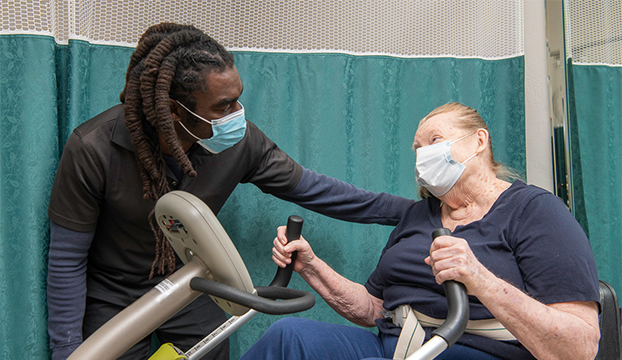Enabling Clients Via Psychosocial Assistance within Cardiopulmonary Recovery Initiatives.
Wiki Article
Cardio-pulmonary rehab initiatives are created to help patients with heart and pulmonary conditions improve their health and quality of living. These programs often include physical activity, instruction about heart and lung health, and assistance for implementing lifestyle choices changes. Nonetheless, one crucial aspect that is sometimes overlooked is the importance of emotional assistance. Emotional assistance refers to the psychological and social assistance that patients receive during their rehabilitation journey. This assistance can strengthen patients, boost their confidence, and assist them manage the obstacles that arise with chronic health issues.

Individuals in cardiac and pulmonary rehab often face various emotional and emotional challenges. Feelings of nervousness, depression, and loneliness can be prevalent. These feelings may arise from the pressure of dealing with a serious health condition or the concern of future medical issues. Psychosocial support can aid address these emotions by offering individuals with a secure space to discuss about their worries and connect with others who comprehend what they are going through. Group counseling sessions and one-on-one therapy can be effective ways to facilitate this assistance. By engaging with experts and others, individuals can learn coping techniques and discover encouragement from others who have similar experiences.
Incorporating psychosocial assistance into cardiopulmonary rehabilitation initiatives can lead to better medical results for individuals. Research show that when patients receive psychosocial assistance, they are more apt to adhere to their rehabilitation plans, adhere to treatment, and implement necessary lifestyle choices modifications. This engagement can lead to enhanced physical health, lessened hospitalizations, and an entire better standard of life. Support teams can encourage inspiration and accountability, assisting individuals stay committed to their rehabilitation goals. This cooperative approach emphasizes the significance of addressing both bodily and emotional health in the recovery process.
learn the facts here now Teachers and medical professionals play a crucial role in providing psychosocial support within these initiatives. They can help individuals comprehend the significance of emotional well-being in their rehabilitation process. By establishing an atmosphere of empathy and understanding, healthcare providers can encourage open dialogue about emotions and concerns. Training staff in communication skills and psychosocial assistance strategies can enhance the general individual journey. Furthermore, incorporating instruction about anxiety reduction, calming methods, and positive adaptation approaches can enable patients to take an proactive role in their emotional health.
In conclusion, strengthening patients through psychosocial assistance in cardiac and pulmonary rehab initiatives is crucial for promoting comprehensive recovery. By recognizing the emotional and social dimensions of recovery, medical professionals can create a more supportive environment that addresses the requirements of the link whole person. Individuals who receive this comprehensive treatment are more apt to achieve their health goals and enhance their overall quality of living. The integration of psychosocial support into recovery initiatives not only improves the patient experience but also contributes to better sustained medical results.